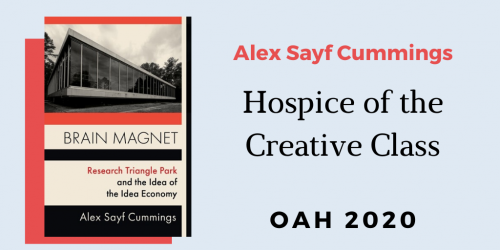Announcing Our 2021 History Catalog

Letter from the Editors:
We are pleased to present the 2021 history catalog from Columbia University Press. We have a slate of new books that unearth the origins of our global crises in capitalism, the international order, and conflicts over race and gender.
In global history, a slate of 2021 releases approach the history of the modern world from new perspectives. In Unsettling Utopia: The Making and Unmaking of French India, Jessica Namakkal explores France’s colonial past in India and its decolonial afterlife in the Auroville Ashram. Henry Nielsen and Kristian H. Nielsen’s Camp Century: The Untold Story of America’s Secret Arctic Military Base Under the Greenland Ice looks from the Danish point of view at a forgotten American Cold War outpost, now poised to re-enter the diplomatic conversation as global warming potentially makes the Arctic a viable region for defense and trade. Lastly, Transtopia in the Sinophone Pacific, by Howard Chiang, examines the transgender experience in China’s sphere of influence, proposing a variegated continuum for understanding transness in history.
This year, our U.S. history list has several new books on the history of capitalism, and especially racial capitalism. Although Cedric J. Robinson popularized the term, racial capitalism has remained undertheorized for nearly four decades. In Histories of Racial Capitalism, the editors Destin Jenkins and Justin Leroy bring together for the first time distinguished and rising scholars to consider the utility of this concept at the intersection of race and capitalism. Contributors argue that racial capitalism is not simply a stage in the larger history of capitalism, but rather it has been with us since the beginning. All the way back to the Atlantic slave trade and the colonization of the Americas, capitalism has been racial, finding social and economic value through racial classification and stratification. Other books speak to this as well, like How the Suburbs Were Segregated: Developers and the Business of Exclusionary Housing, 1890–1960, in which Paige Glotzer excavates the deepest roots of the American suburb, looking at the global financial networks and exclusionary housing policies that made and kept the suburbs white. In Brain Magnet, Alex Sayf Cummings explores the mid-twentieth-century boosterism that made North Carolina’s Research Triangle Park into America’s first knowledge economy.
This year we also debut the long-awaited second volume of Jeff Perry’s magisterial biography of Hubert Harrison, the turn-of-the-century writer, orator, educator, critic, and political activist who, more than any other political leader of his era, combined class consciousness and anti-white-supremacist race consciousness into a coherent political radicalism.
Sincerely,
Caelyn Cobb, editor for global history
Stephen Wesley, editor for U.S. history








